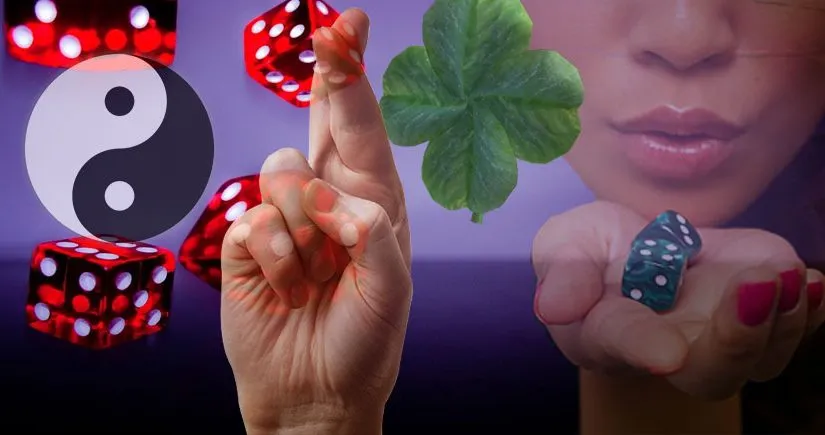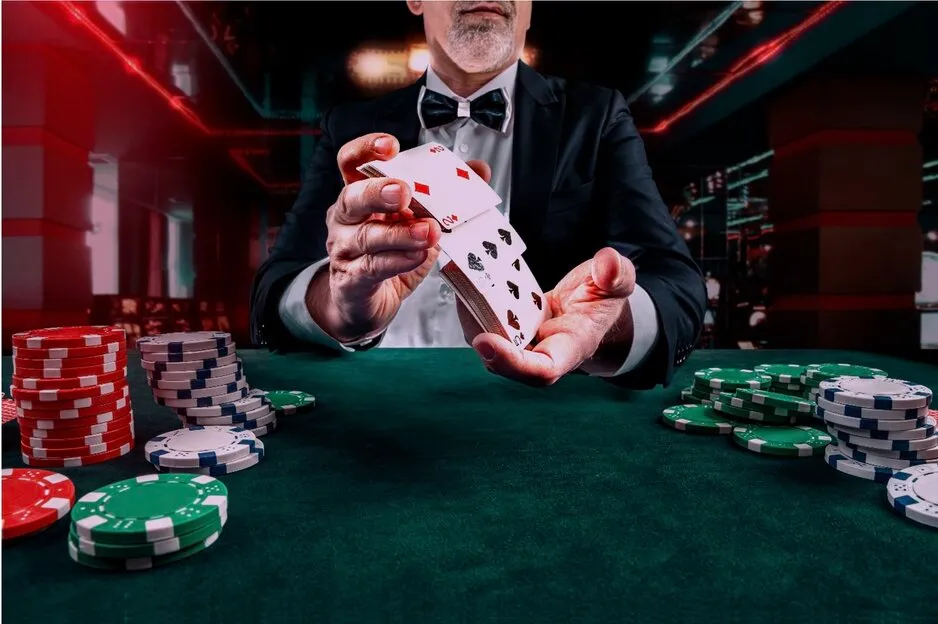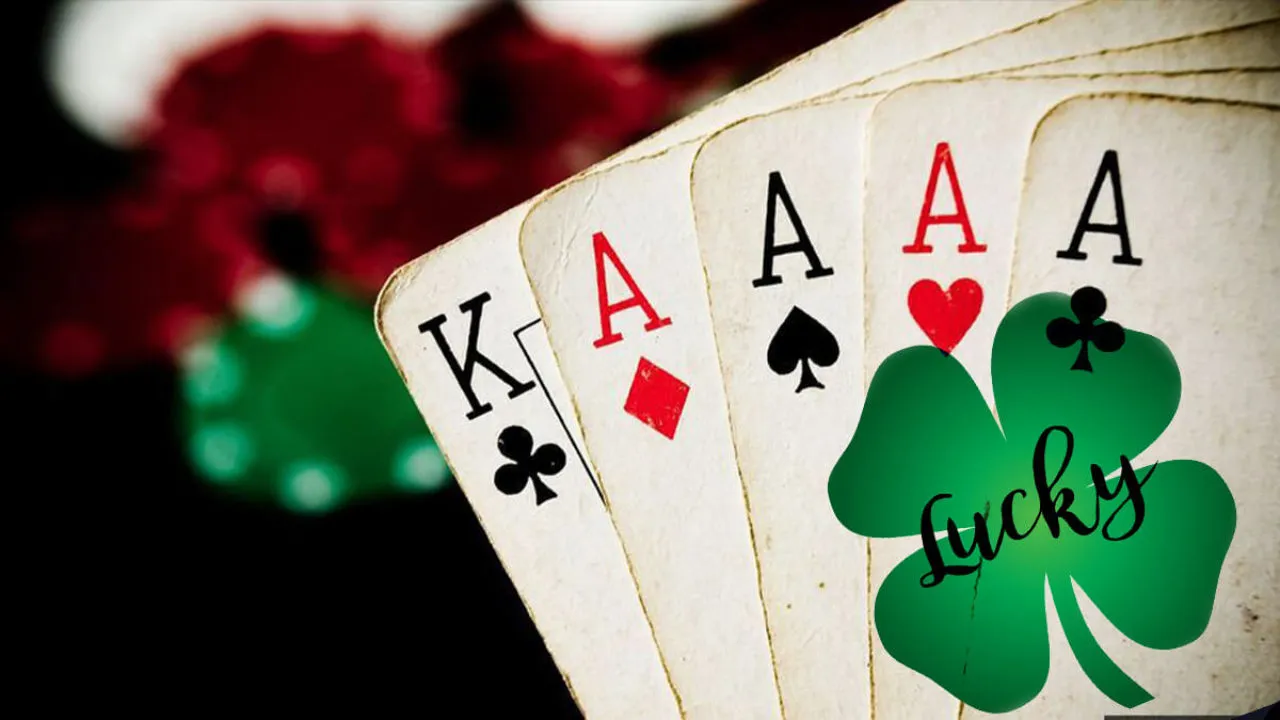In the world of gambling, there are certain beliefs and superstitions that players adhere to in the hopes of increasing their luck and winning big. These superstitions may seem strange or irrational to outsiders, but for players, they hold a significant amount of meaning and influence their actions at the casino. From carrying lucky charms to avoiding certain colors, casino superstitions have been around for centuries and continue to thrive in modern day casinos.
So what exactly are casino superstitions and where do they originate from? In this article, we will take an in-depth look at the most commonly believed superstitions in the casino world and explore their origins and significance. As we delve into the fascinating world of casino superstitions, we will also examine their impact on players and whether there is any truth behind these beliefs.

1. The Belief in Lucky Charms
One of the most well-known superstitions in the casino world is the belief in lucky charms. Many players carry a specific item with them when they visit the casino in the hopes of bringing them good luck. These lucky charms can range from a rabbit’s foot to a four-leaf clover, and some players even have special items that they only use when gambling.
Origins of Lucky Charms
The belief in lucky charms can be traced back to ancient civilizations who believed in the power of symbols and objects. Some cultures believed that certain items had mystical powers that could bring good fortune and protect them from harm. This belief carried over into gambling, where players would use these lucky charms to increase their chances of winning.
In some cases, the lucky charm was thought to possess the energy of a deity or a powerful figure, making it a potent source of luck and protection. For example, in Chinese culture, the color red is considered highly auspicious, and many players wear red clothing or carry a red object when visiting the casino.
Impact on Players
The belief in lucky charms can have a significant impact on players’ behavior and mindset at the casino. Some players may feel more confident and optimistic when they have their lucky charm with them, which can affect their gameplay and decisions. This belief can also lead to players developing rituals or routines before playing, such as rubbing their lucky charm for good luck.
However, it is important to note that the effectiveness of lucky charms is purely based on personal belief and does not have any scientific evidence to support it. While some players swear by their lucky charms, others do not put much stock into them and rely solely on their skills and strategies when gambling.
2. Avoiding the Number 13
Another prevalent superstition in the casino world is the avoidance of the number 13. Many players believe that this number brings bad luck and will go to great lengths to avoid it while gambling. Some casinos even skip the number 13 when labeling their floors or rooms, catering to superstitious players.
Origins of the Fear of 13
The fear of the number 13, also known as triskaidekaphobia, has been around for centuries and is believed to have originated from various cultural and religious influences. In Christianity, the number 13 is associated with the Last Supper, where Judas Iscariot was the 13th guest and eventually betrayed Jesus. In Norse mythology, Loki, the god of mischief and chaos, was the 13th guest at a banquet that ended in tragedy.
Additionally, there are also theories that the fear of 13 stems from the fact that it is an irregular number (not divisible by two) and falls between the numbers 12 and 14, which are considered perfect and complete. This belief in the power of numbers and their significance in our lives has led to the fear of 13 being deeply ingrained in some cultures.
Impact on Players
The fear of the number 13 can have a significant impact on players who are superstitious. Some may refuse to play at a table with the number 13, while others will avoid betting on the 13th spot on a roulette wheel. This belief can also cause players to become anxious and distracted when they encounter the number 13, affecting their gameplay and mindset.
However, just like lucky charms, there is no scientific evidence to support the idea that the number 13 brings bad luck in gambling. It is simply a superstition that has been passed down through generations and has become deeply ingrained in some players’ minds.
3. The Power of Red Clothing

As mentioned earlier, the color red is considered highly auspicious in Chinese culture, and many players believe that wearing red clothing when gambling can bring them good luck. Some players even have specific colors they wear for different games, such as black for blackjack and green for roulette.
Origins of Red Clothing
The belief in red clothing’s power can be traced back to ancient Chinese mythology, where the color was associated with good fortune, joy, and prosperity. In Chinese culture, red is also believed to ward off evil spirits and protect against misfortune, making it a common color choice for special occasions and celebrations.
When it comes to gambling, the color red is believed to bring luck and prosperity, making it a popular choice for players who are seeking success on the casino floor. Additionally, wearing red clothing can also help players stand out from the crowd, giving them a sense of confidence and control over their luck.
Impact on Players
Wearing red clothing at the casino may give superstitious players a sense of security and positivity, which can affect their gameplay. Some players may feel more confident and optimistic while wearing red, leading them to make bolder bets or try new strategies. This belief in the power of red clothing can also lead to players developing routines and rituals, such as wearing the same lucky red shirt for every gambling session.
4. Lucky Numbers and Colors
Similar to the belief in lucky charms, some players have specific numbers or colors that they believe bring them good luck at the casino. These numbers and colors can vary from player to player, and some may even go as far as betting on specific combinations or patterns based on their lucky numbers.
Origins of Lucky Numbers and Colors
The idea of lucky numbers and colors dates back to ancient times when people believed that certain numbers and colors were associated with different deities or had mystical powers. In Chinese culture, for example, the number 8 is considered highly auspicious because it sounds similar to the word for prosperity and wealth. Similarly, the color green is believed to bring good luck in Hinduism and is often associated with money and fertility.
In the casino world, players may choose their lucky numbers and colors based on their cultural beliefs or personal associations. For example, someone who has always had good luck while wearing blue may consider it their lucky color and wear it when visiting the casino.
Impact on Players
The belief in lucky numbers and colors can have a significant impact on players’ behavior and decisions at the casino. Some may stick to their lucky numbers and refuse to bet on any other combinations, while others may incorporate their lucky colors into their clothing or accessories. This belief can also affect players’ bankroll management, as they may be more willing to take risks if they believe their lucky number or color will bring them good fortune.
However, like most superstitions, there is no scientific evidence to support the idea that certain numbers or colors bring luck in gambling. It is simply a belief that gives players a sense of control and positivity while playing.
5. The Unlucky Number Seven
While some players have specific lucky numbers, others believe in the power of unlucky numbers, with seven being the most commonly feared number in the casino world. Many players avoid betting on or even mentioning the number seven while playing, believing that it brings them bad luck.
Origins of the Fear of Seven
The fear of seven can be traced back to various cultural and religious influences. In Christianity, for example, the number seven is often associated with the seven deadly sins and is believed to bring misfortune and temptation. In Hinduism, seven is seen as a sacred number and represents the seven chakras or energy centers in the body. However, in Chinese culture, seven is considered an auspicious number and is associated with good luck and fortune.
In the gambling world, many players believe that the number seven disrupts their gameplay and leads to losses, giving it a negative connotation.
Impact on Players
The fear of the number seven may cause superstitious players to become anxious and distracted when they encounter it at the casino. Some may even go as far as avoiding tables or machines with the number seven, affecting their choices and gameplay. This belief can also lead to players developing rituals or routines to counteract the supposed bad luck brought by the number seven.
6. The Influence of Feng Shui

Feng Shui is an ancient practice originating from China that focuses on harmonizing one’s surroundings to promote positive energy and good fortune. In the casino world, many players believe in the principles of Feng Shui and use it to enhance their luck and success at the casino.
Origins of Feng Shui
Feng Shui, which translates to “wind and water,” has been around for over 3,000 years and is deeply rooted in the Taoist philosophy of balance and harmony. It is based on the belief that everything in our environment, including objects and spaces, has a flow of energy that can impact our well-being and luck.
In the casino world, Feng Shui is used to enhance positive energy flow and counteract any negative influences that may disrupt a player’s luck. Some players may consult a Feng Shui expert to help them choose the best tables or machines to play at, while others may incorporate elements of Feng Shui into their gambling routine.
Impact on Players
The belief in Feng Shui can have a profound impact on players who adhere to its principles. Some may feel more confident and at ease when playing at a table or machine that has been “blessed” by a Feng Shui expert, leading them to make better decisions and enjoy a positive experience. However, it is essential to note that there is no scientific evidence to support the effectiveness of Feng Shui in gambling, and its influence is purely based on personal belief.
Conclusion
Superstitions have been a part of human culture for centuries, and the casino world is no exception. From lucky charms to avoiding certain numbers and colors, players have their own unique beliefs and rituals that they follow in the hopes of increasing their luck and winning big. While these superstitions may seem irrational to some, they hold significant meaning to those who believe in them and continue to thrive in modern-day casinos.
It is important to remember that superstitions in the casino world are based on personal belief and do not have any scientific evidence to back them up. They should be viewed as a fun and harmless aspect of gambling, rather than a surefire way to increase one’s luck. Ultimately, the success of a player at the casino is determined by their skills, strategies, and luck, not by any external factors such as lucky charms or numbers.
So the next time you visit the casino, don’t be surprised to see players wearing red clothing or avoiding the number 13. Embrace the unique superstitions of the casino world and enjoy the thrilling experience of gambling. Who knows, you may even develop your own lucky ritual that brings you success at the tables.